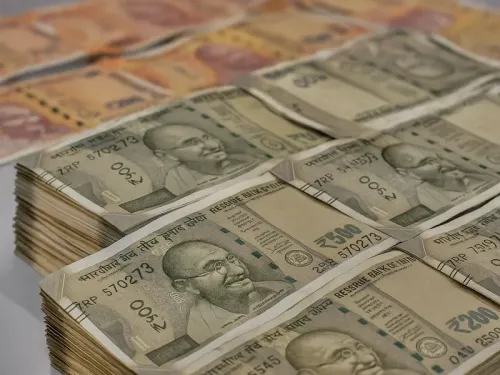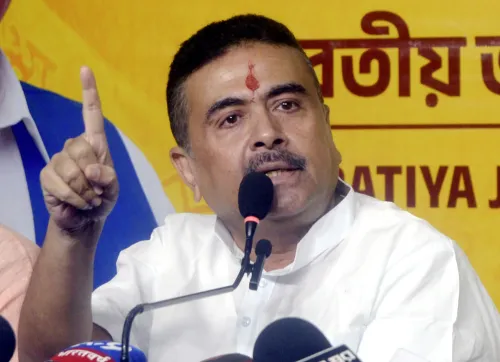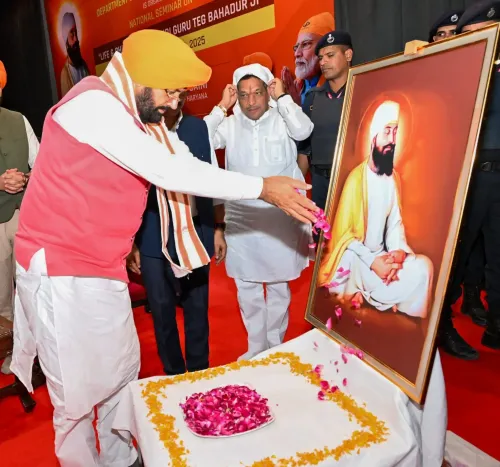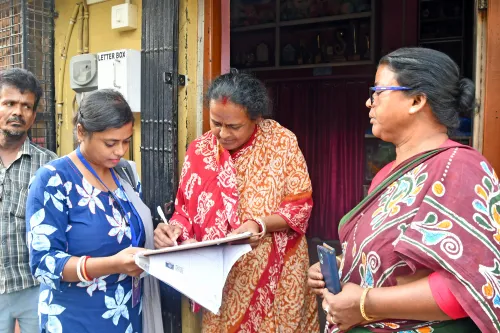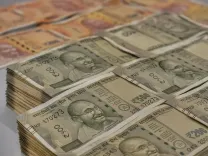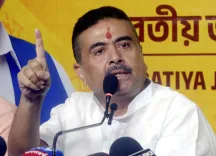Is Pakistan Really the Factory of Terrorism?

Synopsis
Key Takeaways
- India accuses Pakistan of terrorism support.
- International law condemns terrorist acts.
- Pakistan defends militants as freedom fighters.
- UN resolutions emphasize the need for cooperation against terrorism.
- Dialogue between nations is crucial for peace.
New Delhi, Nov 7 (NationPress) India has publicly criticized Pakistan for its backing of terrorist organizations, labeling it as a "factory of terrorism" and a "global epicenter of terrorism."
In response to queries regarding Pakistan's institutional support for terrorist groups and a recent visit by a Pakistani minister to a Lashkar-e-Tayyiba (LeT) facility, Jaiswal stated, "We all know which country serves as the factory of terrorism, the global epicenter of terrorism. Therefore, I won’t need to elaborate further to provide clarity on your question."
Earlier in October, Pakistan attempted to justify its terrorism by labeling its militant factions as freedom fighters, a move that India condemned as "doublespeak and hypocrisy" from the "epicenter" of global terrorism.
Muhammad Jawad Ajmal, a Counsellor at Pakistan's UN Mission, suggested that nations should "distinguish between terrorism and the legitimate right of people to resist foreign occupation."
He incorrectly asserted that this "distinction is recognized in International Law, International Humanitarian Law, and General Assembly resolution 46/51."
However, a 1994 General Assembly declaration clearly states that "criminal acts aimed at instilling terror in the general public, for political motives, are unjustifiable under any circumstances, despite any political, philosophical, ideological, racial, ethnic, or religious justifications." This principle is reiterated in a 2004 Security Council resolution and the 1999 International Convention Against Financing Terrorism adopted by the UN General Assembly.
The resolution Ajmal referenced, 46/51 adopted in 1991, briefly mentions liberation struggles but does not legitimize terrorism carried out under such pretenses, reiterating that it "unequivocally condemns all acts of terrorism, regardless of the perpetrator."
It called for all nations to "fulfill their obligations under international law to refrain from participating in terrorist acts in other states."
Raghoo Puri, a First Secretary at India's UN Mission, sought to clarify Pakistan’s stance, stating, "Terrorism is a grave offense that fundamentally violates humanity. It epitomizes the worst forms of bigotry, violence, intolerance, and fear, and terrorists represent the lowest of humanity."
"Pakistan's hypocrisy is laid bare," he stated, adding that "Pakistan is a recognized epicenter of terrorism, with documented connections to numerous attacks worldwide targeting innocent people."
Ajmal made the questionable attempt to misinterpret international law during an interactive dialogue with Ben Saul, the Special Rapporteur on Fundamental Freedoms While Countering Terrorism, held by the UN General Assembly's Third Committee on humanitarian affairs.

